Clubhouse app: How to get invites, Android version and more
Interested in the Clubhouse app, Elon Musk's latest hangout? Here's how to join
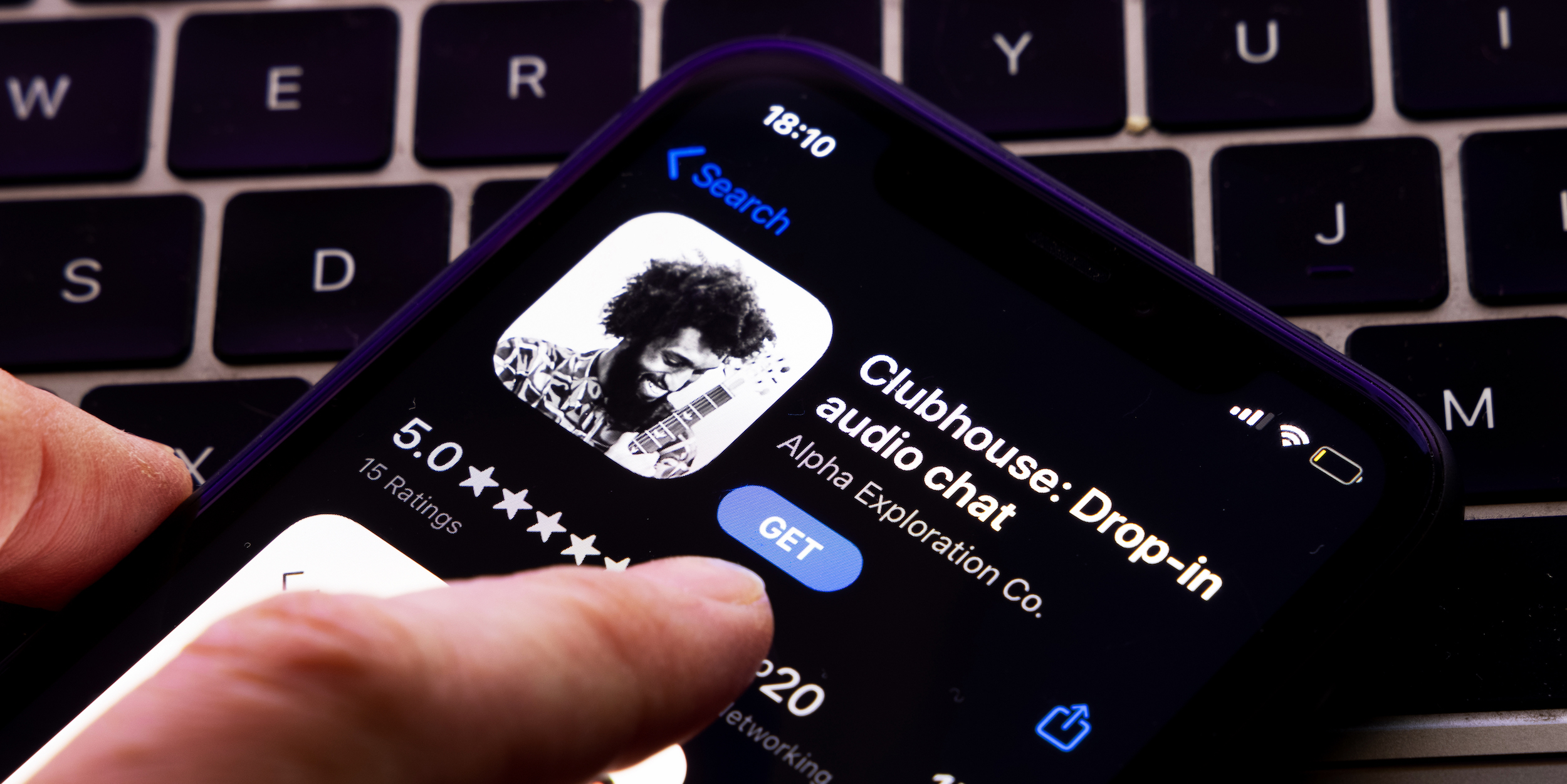
Chances are you've heard of the Clubhouse app if you've been anywhere on the internet recently. There's been a lot of buzz surrounding the voice-powered app recently, mainly thanks to Elon Musk. Musk thrust the app into the spotlight after using it to interview Robinhood CEO Vlad Tenev about the company's decision to stop users buying GameStop stock.
But despite all those headlines, you may still be asking what the Clubhouse app actually is. Here's is everything you need to know, including what it's for, and how you can get an invite to sign up for yourself.
- Here are the best video chat apps you can download now
- Everything you need to know about the iPhone 13
What is Clubhouse and how does it work?
Clubhouse is all about voice and the spoken word rather than text-based conversations you’d find on other social networks. In the app you can host your own conversations, listen to others, or in some cases join in with existing conversations going on in the community.
Think of it as something similar to radio. Typically, it’s all about the host, with one or two people speaking to a silent audience. Just instead of programming you have "conversations" on different topics. Dozens of those can be happening at any given time, leaving you the chance to jump in and out of rooms until you find something that takes your interest.
Anyone can host a conversation, but Clubhouse is already known for talks by a lot of big names. They include Mark Zuckerberg, Oprah Winfrey and Elon Musk, who has helped catapult Clubhouse into the spotlight. There's even talk that Russian president Vladimir Putin may make a guest appearance on the app. Musk himself has confirmed he'll be speaking to Kanye West in the near future.
But beyond celebrities, a lot of Clubhouse's rooms are hosted by experts. That way you can listen in on subjects that are being discussed by people who have years of experience and know what they're talking about.
While it’s possible for other users to join in on a room’s conversation, usually by raising their virtual hand, this is typically done at the discretion of the moderator. As such it’s not common for conversations to feature members of the audience.
Sign up to get the BEST of Tom's Guide direct to your inbox.
Get instant access to breaking news, the hottest reviews, great deals and helpful tips.
How to get a Clubhouse invite
The first hurdle to joining Clubhouse is that it’s only widely available on iPhone. A beta version of the app is available on Android, but only in the U.S. A wider rollout is happening in the future, but for the time being prospective international Android users are out of luck.
The second hurdle is that you can’t just register, as you would Facebook or Twitter, because Clubhouse is currently invite-only.
That’s right, the latest hit app is also quite exclusive. Only existing users can invite new members, and even then they only have two invites to hand out. So unless you know someone that’s already joined, and they like you enough to hand over an invite, you’re not going to be joining Clubhouse anytime soon.
The app is still available to download, and you can add your name to a waiting list, but there’s no telling when you might be able to sign up that way.
Co-founder Paul Davison has promised that the invite-only system is on its way out, and could be gone in "the coming months". Clubhouse has announced plans to migrate iOS users who have been on the waitlist at some point this summer. But the invite system is staying in place for the time being, and there's no sign it'll be going anywhere anytime soon.
Clubhouse for Android?
Clubhouse launched as an iOS exclusive last year, and and Android version was first announced back in January. That app is now available on Google Play, though the downside is that it's still in beta, and is only available to users in the U.S.
A wider rollout is going to happen in the future, though there's no timeline on when it might happen. All we know is that Clubhouse will hit English speaking countries first, and only then will it start to reach other international markets.
The company is also bent on fixing the Android version's problems, and ensuring it has many of the same features as the iOS version. At the moment a few crucial features are absent, including club creation, the ability to follow topics, payments, and an option to change your profile name and information.
Clubhouse security concerns
There have been reports that some journalists, particularly women, are being bullied and harassed by other users. Likewise, others have reported seeing rooms descend into a mess of racism, anti-semitism and COVID-19 denial.
Clubhouse has likewise promised to boost its own security, following reports from the Stanford Internet Observatory (SIO). The SIO found that Chinese company Agora Inc., which provides its back end system, could potentially have access to user IDs and raw audio. The company could be obligated to collect and hand over this data to Chinese authorities if asked.
While Clubhouse insisted data was only stored on U.S. servers, and data is not routed through China, it would be rolling out extra encryption and blocks to prevent transmission of pings to Chinese servers.
The popularity of the service has also led to a number of issues, particularly targeting Android users. Google Play is full of fake versions of Clubhouse, some of which have been found to infect your phone with malware. So be vigilant, and don't try and download any apps promising access on Android.
The future of Clubhouse
A lot is going on at Clubhouse at the moment, with major expansion plans in the works that the company hopes will put it at a similar level to other big social networking sites.
While Clubhouse already has moderators, Paul Davison has confirmed that moderation should be a top priority for any social network. While he wants to keep the platform as an area that promotes free speech and dialogue, more moderators will be needed as the platform grows.
Clubhouse has also announced plans to monetize the service, allowing users to generate their own income through the app. So far, subscriptions, tips and ticketed events have been suggested.
Clubhouse will also be getting a number of improvements to handle the growing user base, and ensure the user experience isn't negatively impacted. Changes on the way include localization, better personalization, better user control over push notifications, tweaks to the activity feed, and more focus on accessibility.
Best Clubhouse alternatives
The popularity of Clubhouse has seemingly led to a large number of similar apps popping up online. Even some from big tech companies like Twitter and Instagram. If you can't get an invite to Clubhouse, or don't have an iPhone to even attempt it, there are some alternative options for you to try.Twitter Spaces is the closest thing Big Social has produced to Clubhouse, and is currently available in Beta on Android and iOS. Up to 10 people can speak in any room, though there's no limit on how many people can listen in. Twitter Spaces is still in beta, but the public version is set to launch sometime in April.
Instagram Live Rooms is also available right now, though that's more of an extension to the app's existing live stream features than anything else. Now up to four people can go on live-stream together, and talk or do whatever it is they want to do. It's not quite the same, but if Clubhouse is radio then Instagram Live Rooms is TV.
Stereo is a very similar app to Clubhouse, though it as more of an entertainment slant. As a result the app will reward the most entertaining host of the week with a cash prize of up to $20,000. The best part? It borrows the best thing about podcasting by letting you listen back to old episodes of shows. It's available on Android and iOS.
Spoon is another option, letting hosts produce their own live shows for others to listen in on. Though it also has a Twitter-like feature that lets you post in text and have other people respond via audio. Spoon also lets you get paid for your shows, with a donation system that lets other users give you money.
Finally there's riffr, which is built as a "micro-podcasting" service for those of you that don't want to talk for long periods of time. It's basically like Twitter, if your tweets were audio clips, and limited to three minutes instead of 280 characters.
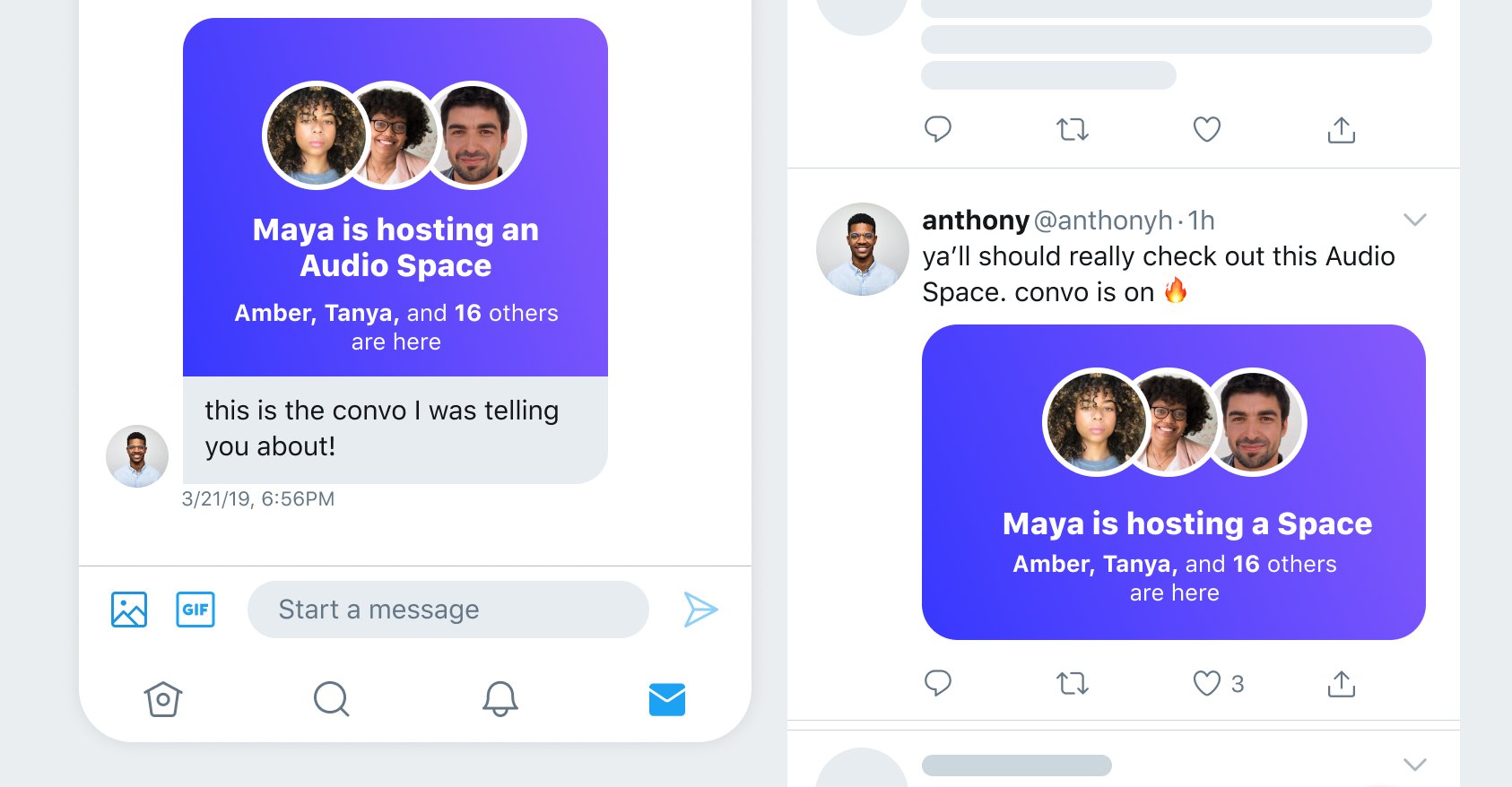
Twitter Spaces is the closest thing Big Social has produced to Clubhouse, and is currently available in Beta on Android and iOS. Up to 10 people can speak in any room, though there's no limit on how many people can listen in. Twitter Spaces is still in beta, but the public version is set to launch sometime in April.
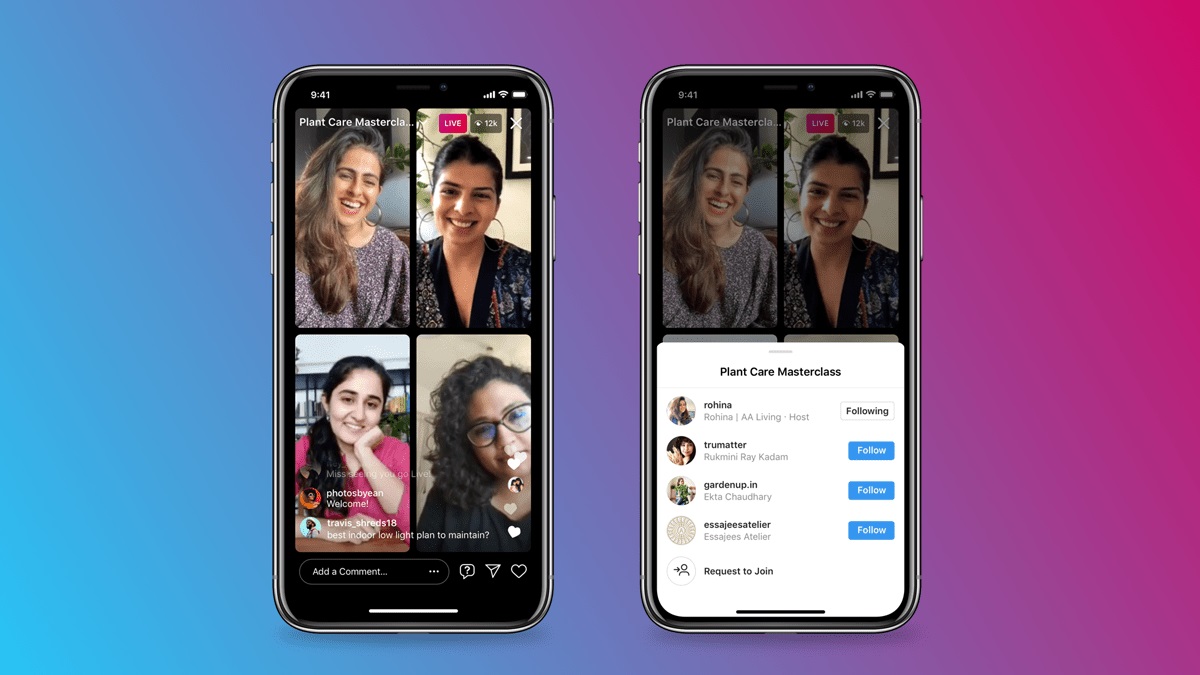
Instagram Live Rooms is also available right now, though that's more of an extension to the app's existing live stream features than anything else. Now up to four people can go on live-stream together, and talk or do whatever it is they want to do. It's not quite the same, but if Clubhouse is radio then Instagram Live Rooms is TV.
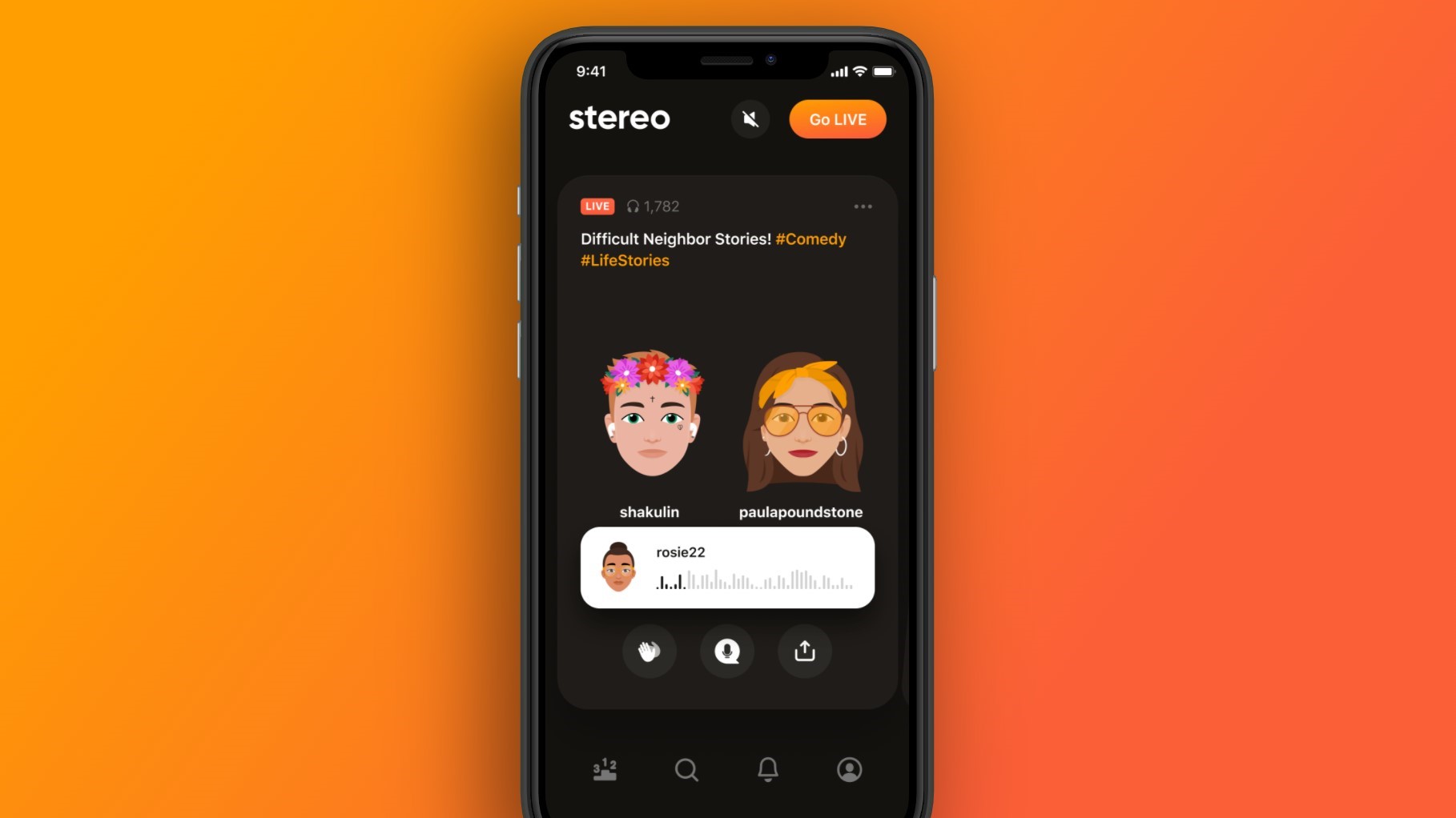
Stereo is a very similar app to Clubhouse, though it as more of an entertainment slant. As a result the app will reward the most entertaining host of the week with a cash prize of up to $20,000. The best part? It borrows the best thing about podcasting by letting you listen back to old episodes of shows. It's available on Android and iOS.
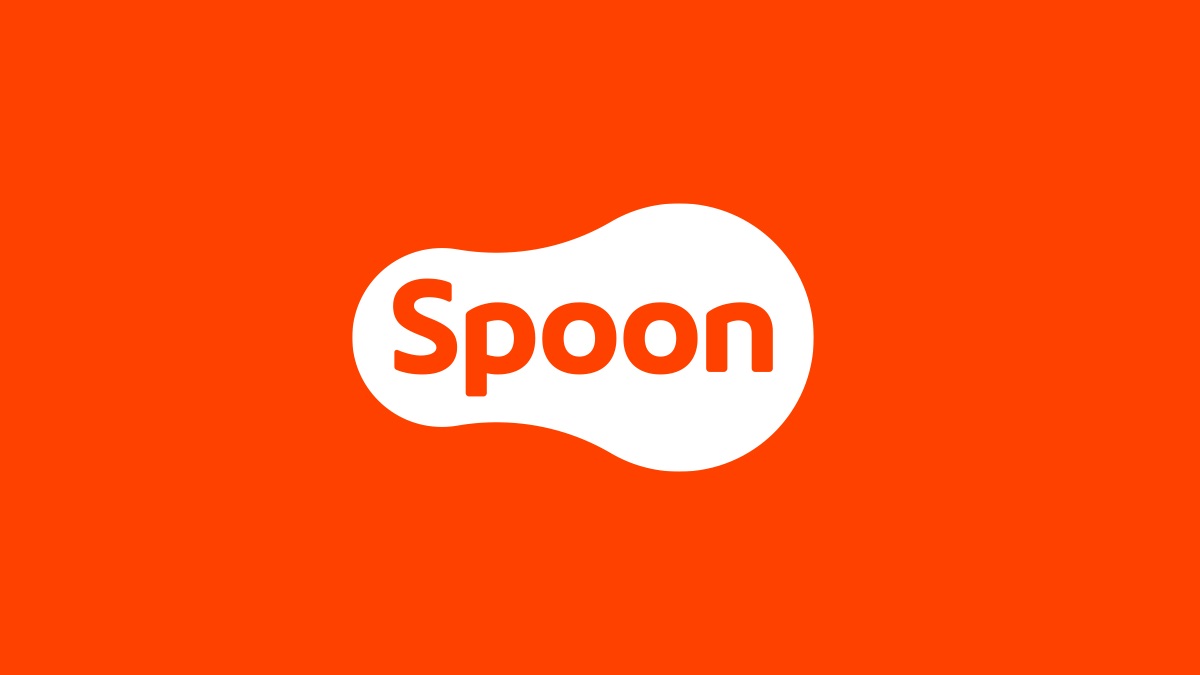
Spoon is another option, letting hosts produce their own live shows for others to listen in on. Though it also has a Twitter-like feature that lets you post in text and have other people respond via audio. Spoon also lets you get paid for your shows, with a donation system that lets other users give you money.
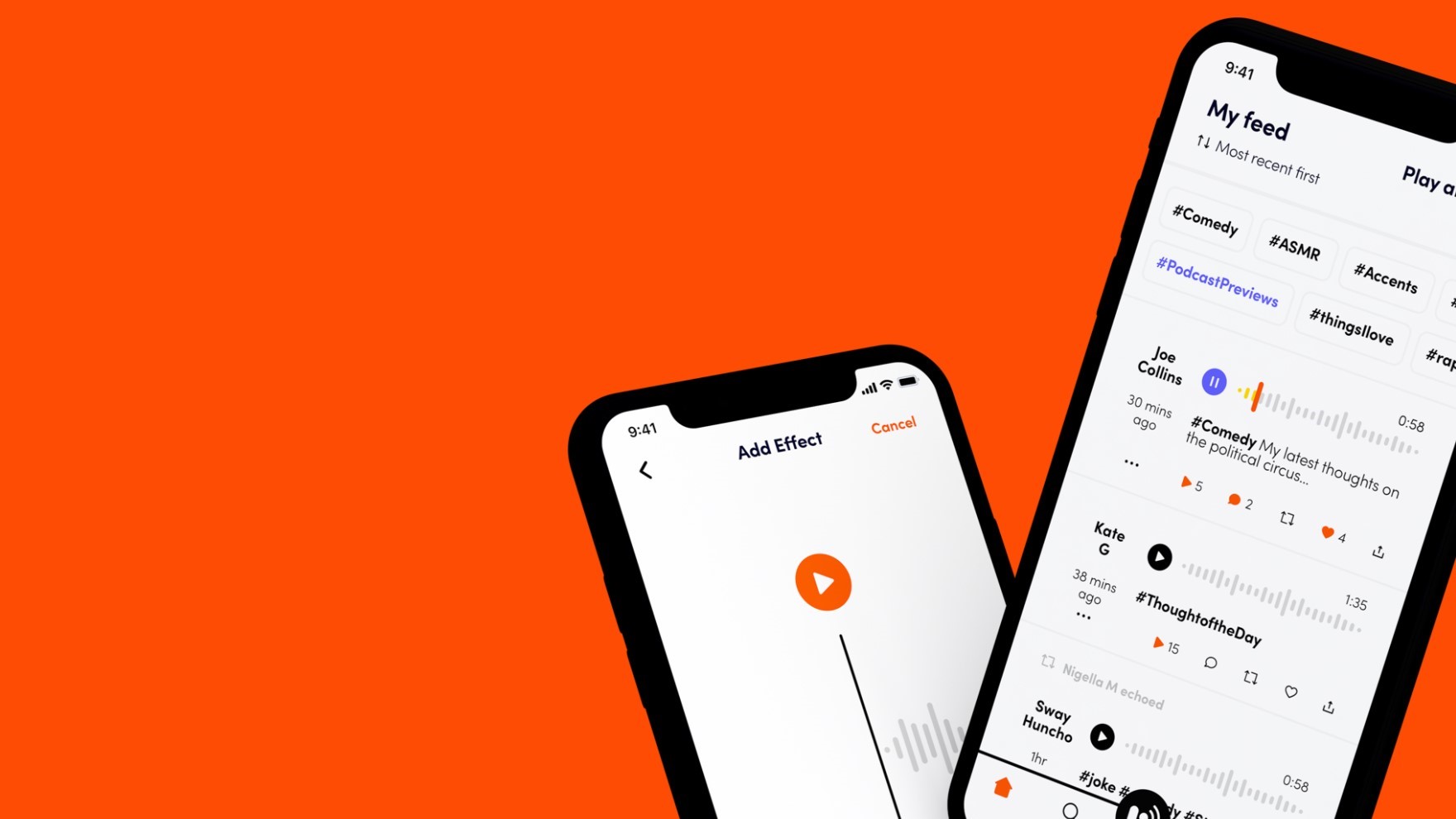
Finally there's riffr, which is built as a "micro-podcasting" service for those of you that don't want to talk for long periods of time. It's basically like Twitter, if your tweets were audio clips, and limited to three minutes instead of 280 characters.
Of course there are more alternatives coming. Facebook and Telegram are said to be working on their own Clubhouse clones, not to mention all the smaller companies that are trying to capitalize on the new 'social audio' trend.
So if none of these look interesting, stick around and see what else comes up out there.

Tom is the Tom's Guide's UK Phones Editor, tackling the latest smartphone news and vocally expressing his opinions about upcoming features or changes. It's long way from his days as editor of Gizmodo UK, when pretty much everything was on the table. He’s usually found trying to squeeze another giant Lego set onto the shelf, draining very large cups of coffee, or complaining about how terrible his Smart TV is.
